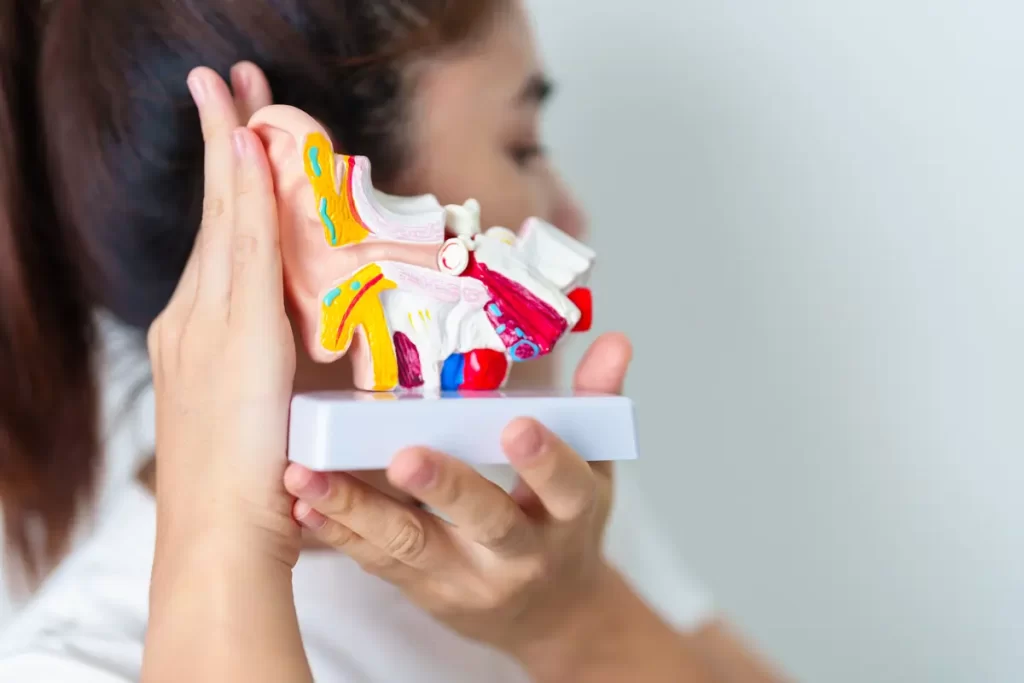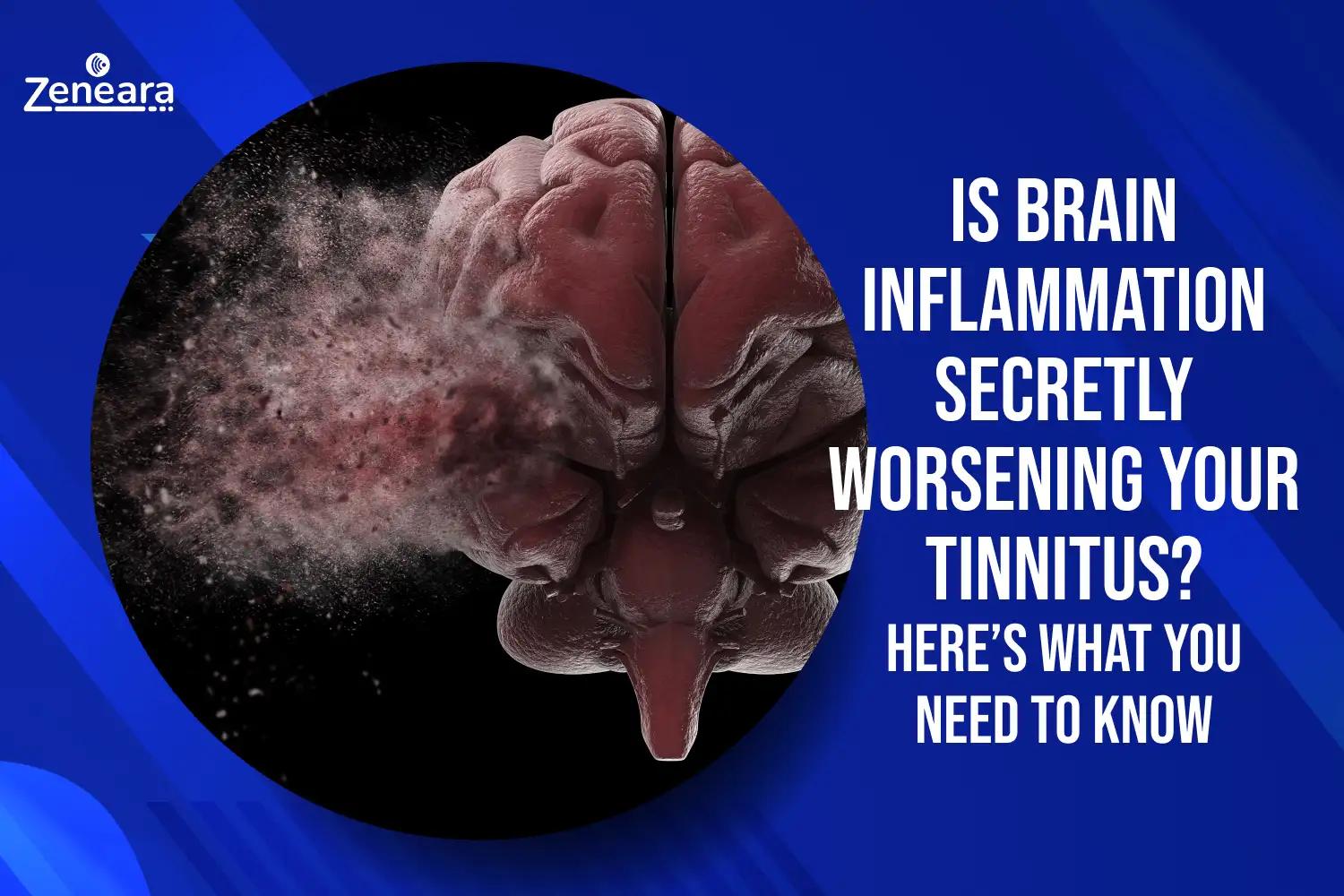Hey it’s James Barrett here!
We often think of inflammation as a problem affecting our ears, joints, or even our skin.
But did you know that inflammation can also occur in the brain?
That’s right… your brain can become inflamed just like any other part of your body.
And when it does, it can wreak havoc in ways you might not expect… including worsening your tinnitus.
But here’s the thing…
This isn’t just about throwing medical jargon at you. I’m talking about something that could be a game-changer in your quest to get rid of that persistent ringing in your ears.
Before we dive deeper, I want to hear from you…
Have you ever noticed that your tinnitus worsens when you’re stressed or mentally foggy? Drop a reply and let’s start a conversation. You might just find you’re not alone in this experience.
Now, why should you care about brain inflammation?
I’ve spent years studying the intricacies of ear health, and one of the most compelling discoveries I’ve made is how deeply connected our brains are to what’s happening in our ears.
You see, inflammation isn’t just something that happens when you sprain your ankle or eat too much sugar. It’s a complex process that can occur anywhere in the body, including the brain.
When inflammation takes root in the brain, it can cause a ripple effect that makes tinnitus more intense, more frequent, and more frustrating.
So, why am I so passionate about sharing this with you? Because I believe that to truly get rid of tinnitus, we need to understand it from every angle. It’s not just about masking or learning to live with the noise. It’s about getting to the root of the issue. And that’s exactly what we’re going to explore together.
Understanding Brain Inflammation and Tinnitus

When we expose our ears to loud noises, it can lead to noise-induced hearing loss (NIHL), which in turn triggers a neuroinflammatory response in the auditory pathways of the brain. This inflammation can create an imbalance in the brain’s signaling pathways, leading to the perception of tinnitus.
Studies led by the University of Arizona have shown that inflammation in the auditory cortex is directly linked to tinnitus. Scientists found elevated levels of pro-inflammatory cytokines and activated microglia—the brain’s immune cells—in the brains of mice with NIHL.
Notably, when they blocked a specific cytokine known as TNF-α, the mice no longer exhibited signs of tinnitus.
This groundbreaking discovery suggests that targeting neuroinflammation could be a promising new avenue for treating tinnitus and related hearing disorders.
Causes of Brain Inflammation
Understanding what causes brain inflammation can help us address it effectively. Here are some key factors:
Chronic infections: Persistent infections can trigger inflammatory responses in the brain.
Systemic inflammation: Conditions like autoimmune diseases and inflammatory bowel diseases can release cytokines that affect brain function.
Trauma: Previous head injuries or concussions can lead to lasting inflammation.
Dietary factors: What you eat plays a crucial role in your overall health, including the health of your brain.
Diets high in processed foods, sugars, and unhealthy fats can contribute to systemic inflammation, including neuroinflammation.
Food intolerances, such as gluten sensitivity, can exacerbate inflammation.
Lack of Sleep: Your brain needs sleep to repair and remove toxins. When you don’t get enough rest, it can lead to an accumulation of inflammatory markers in the brain, exacerbating conditions like tinnitus.
Environmental toxins: Exposure to pollutants and toxins can compromise brain health.
Metabolic issues: Conditions like diabetes and poor circulation can increase the risk of neuroinflammation.
These factors can create a perfect storm, leading to increased inflammation in the brain and, consequently, worsening tinnitus symptoms.
How Brain Inflammation Could Be Making Your Tinnitus Worse

Neuroinflammation can significantly impact the auditory system and exacerbate tinnitus symptoms. When microglia are activated by inflammation, they can hinder neuronal communication and energy production, leading to cognitive deficits and increased perception of sound in the absence of external stimuli.
This chronic neuroinflammation is associated with an increased risk of neurodegenerative diseases and can worsen tinnitus symptoms.
By understanding the role of brain inflammation in tinnitus, we can take steps to manage both conditions and potentially find relief.
Taking Action: How to Calm Brain Inflammation and Tame Your Tinnitus
Addressing brain inflammation often involves a multi-faceted approach:
Dietary changes
Reducing inflammatory foods and incorporating antioxidants can help restore brain health. Consider a diet rich in fruits, vegetables, whole grains, and healthy fats.
Stress management
Techniques such as mindfulness, meditation, and regular exercise can lower stress levels, which is crucial since high stress can degrade the blood-brain barrier and exacerbate inflammation.
Medical interventions
In some cases, medications targeting inflammation may be necessary, especially for individuals with underlying autoimmune conditions or chronic infections.






